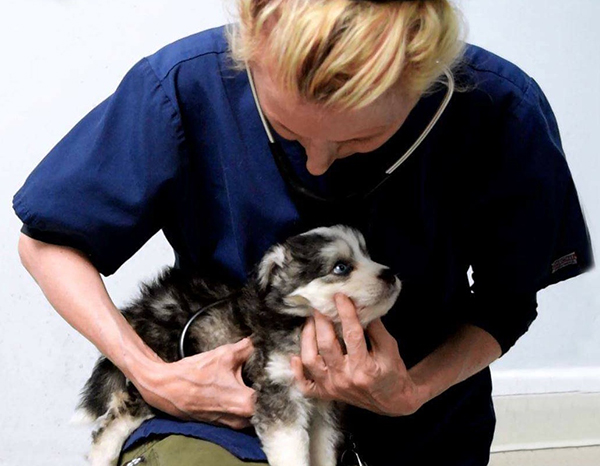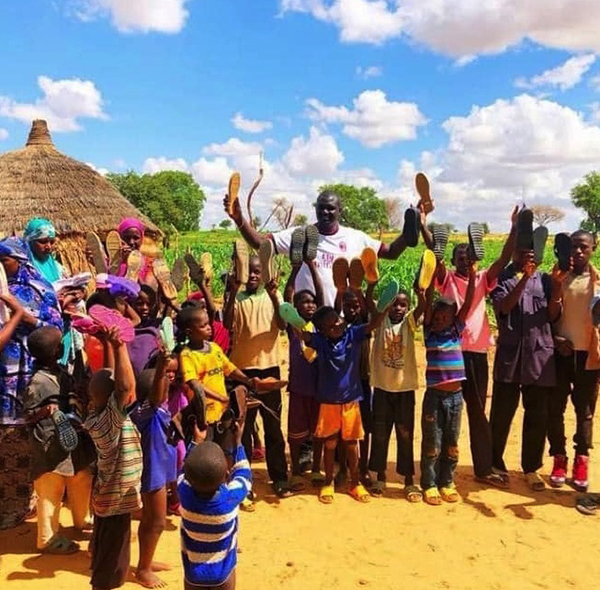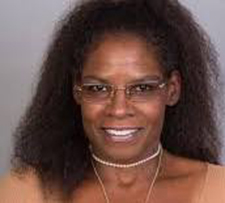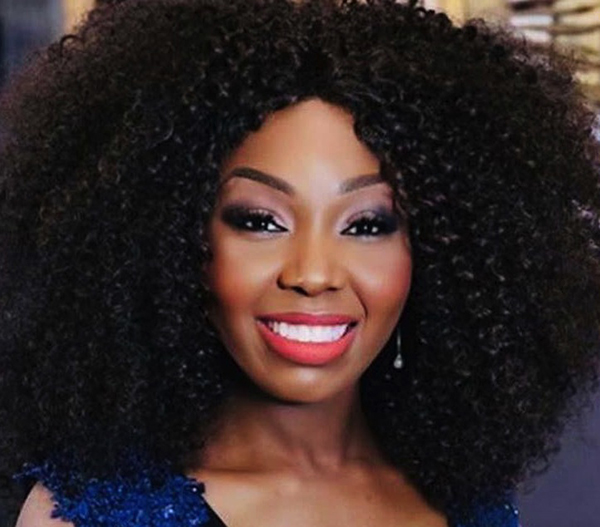MAKING A DIFFERENCE
By Darlene Donloe
Contributing Writer
Ever since the coronavirus took hold of the city, the Society for the Prevention of Cruelty to Animals Los Angeles (spcaLA) has been holding its breath, waiting for a deluge of stray and abandoned animals to come through its doors, but, so far, it hasn’t happened.
“We’re not seeing it yet,” said Madeline Bernstein, president of spcaLA. “We are bracing for it. We’re also not seeing it from our colleagues around the state. We are actually seeing a drop in returning animals that have been adopted.”
The reason spcaLA has been bracing is due to the high rate of unemployment in the city of Los Angeles, which could lead to people being unable to afford their pets.
Bernstein, who has been with spcaLA for nearly 25 years, has some ideas as to why they haven’t seen an onslaught of abandoned pets — yet.
“My best guess would be a combination of the summertime and spring break typically being a good time for animal adoptions,” she said. “Also, because people need some connection to something else that can love them and they can do things with. It’s about companionship.
“This staycation that some people are experiencing is a great opportunity for these adoptions to stick. Some people rose to the occasion to foster and help the shelters.”
The society, which has more than 6,000 animals go through its door annually, is an independent, nonprofit animal welfare organization serving Southern California since 1877. Donations run programs and services including cruelty investigations, disaster animal response team, violence prevention and humane education, and a variety of shelter services.
Bernstein said there were a couple of things that most people don’t know about the SPCA. For instance, she stresses that each organization is independent of the others.
“We are not related to other SPCAs and there is no national chapter,” she said. “We are asked that quite a bit. People think if they donate to the SPCA in New York that somehow it will find it’s way to Los Angeles. You’re mistaken. It doesn’t.
“We’re all independent. If you donate to the wrong organization, the money will not get to where it needs to go. Every SPCA is separate.”
Second, Bernstein said, most people don’t realize that the history of the organization included not only the prevention of animal abuse but also for child abuse and domestic abuse.
Bernstein said in 1877 when the organization opened, it was also known as an SPCC, (Society for the Prevention of Cruelty to Children) as well as cruelty to animals.
“We preceded the child labor laws,” she said. “Women were also exploited.”
spcaLA started the first domestic violence program in 1997 when no one realized the connection with animals.
“Animals are being caught in that cycle,” said Bernstein, who has two dogs, a cat, and two tortoises, all rescues. “With COVID, violence would be exacerbated by hot weather, unemployment, the holiday season, and alcoholism.
“Domestic violence has skyrocketed since COVID. The animals are also the victims of that. Some really sick people getting gratification by abusing small animals and then they graduate to people. It’s really sad.”
While most of the animals that show up at SPCAs are dogs and cats, Bernstein said they usually get a menagerie that includes rabbits, pocket pets (Guinea pigs and hamsters), sheep, pigs, reptiles, horses and even a hawk.
“Unfortunately, people are also cruel to those animals,” Bernstein said. “If we can’t hold the horses in one of our facilities, we have to find a horse barn or somewhere they can be held. During an adoption fair, we seized a couple of horses that were being treated cruelly. These two horses were locked up in a grassy area where they couldn’t get out. We do what we have to do. We can temporarily hold almost any animal. There is also a turtle sanctuary and a reptile sanctuary.”
For those interested in adopting a dog, Bernstein encourages them to adopt a shelter dog.
“Some people think getting a dog from birth is better than a shelter dog,” said Bernstein, who wrote a book called “Designer Dogs.” “Shelter dogs are wonderful dogs. Not all, but most.
“About 25% of shelters have purebred dogs. We can’t give you papers though. Most breeds come through the shelter. Some are $5,000 designer dogs. When the fad has worn off, some people give up those dogs due to illness, age or death.”
Over the years, Bernstein has recognized a number of reasons why people are cruel to animals.
“The main reason could be power, anger or frustration,” she said. “Any of those, or a combination of many of those things, could be the reason.”
A New York native, Bernstein was originally a prosecutor. Through a bunch of serendipitous events, she got into animal welfare issues while living in New York.
“When I relocated out here, I was asked if I was interested in taking the position,” Bernstein said. “I was interested because they also had a law enforcement unit. I was able to arrest people for violating laws related to animals. Our organization is different from other SPCAs. We are pioneers in domestic violence and more.”
Asked why people should care about animals, Bernstein, who insists her job is “never boring,” was eager to explain.
“I don’t really care if people care about loving an animal so much that they have to have a pet,” she said. “I do care about them not gratuitously harming an animal. They should care because it’s a terrible precedent to set for your family.
“Some people are being hurt, so they hurt something smaller. When we are kind and respectful people, we’ll also be kind and respectful to animals. We’re all connected, and when you’re being kind to animals, people and the planet, it’s all there.”
Ironically, if the aforementioned came to fruition, Bernstein acknowledges that she’d be out of a job.
“I’d like to talk myself out of a job,” Bernstein said. “Animal cruelty would be done. I could sit and drink bourbon and watch SpongeBob SquarePants. Can you imagine how great the world would be if we could stop cruelty, domestic violence, AIDS and hunger?”
Darlene Donloe is a freelance reporter for Wave Newspapers who covers South Los Angeles. She can be reached at ddonloe@gmail.com.












